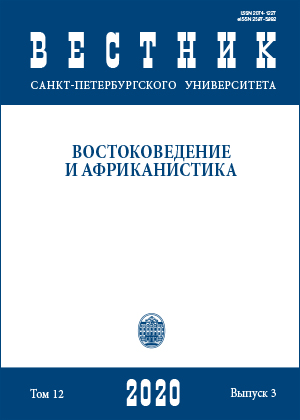From Western Knowledge to a National Textbook: The Evolution of Li Quanshi’s Socio-economic Views
DOI:
https://doi.org/10.21638/spbu13.2020.308Abstract
The article analyzes the scholarly legacy of Li Quanshi as part of the history of intellectual interactions between China and the West in the Republican Period. Having been educated in the United States, in the early 1920s Li Quanshi used Western economic theories to develop a model of administrative and fiscal decentralization in China. He denounced “the communism of revenue” between different levels of government in China, pointed to the failure of a despotic centralized bureaucracy, and called to transfer financial authority to the level of provincial assemblies. Later, Li Quanshi’s views evolved from liberalism to the support of government intervention in the economy. Numerous publications by Li Quanshi impacted the process of the formation of Chinese economics in the Republican Period. He proposed to produce a “national textbook” in economics that took into account the Chinese realities. Li Quanshi set the goal of moving from copying and rendering foreign books to creating China’s own internationally competitive academic writings. The scholar relied upon the division of economics, widely accepted in the West, into production, distribution, exchange, and consumption, but its application to traditional Chinese material generated new results. In the first history of Chinese economic thought written in the Chinese language Li Quanshi interpreted and structured traditional heritage using Western concepts. His determination to introduce Chinese characteristics into economic research has stimulated increased attention to the issues of consumption and the role of the state in the economy. It is concluded that Li Quanshi’s ideas of the 1920s and 1930s have regained relevance in the context of the current official policy of support to “social sciences with Chinese characteristics”.
Keywords:
Republican China, economics, financial system, E. R. A. Seligman, national textbook, consumption, ancient Chinese thought
Downloads
References
Downloads
Published
How to Cite
Issue
Section
License
Articles of "Vestnik of Saint Petersburg University. Asian and African Studies" are open access distributed under the terms of the License Agreement with Saint Petersburg State University, which permits to the authors unrestricted distribution and self-archiving free of charge.





